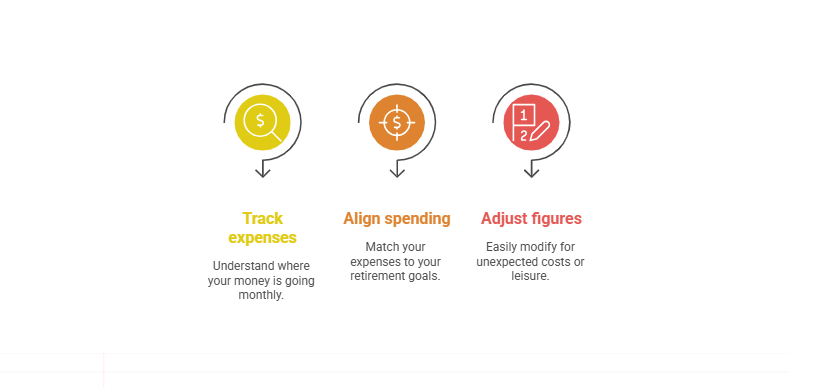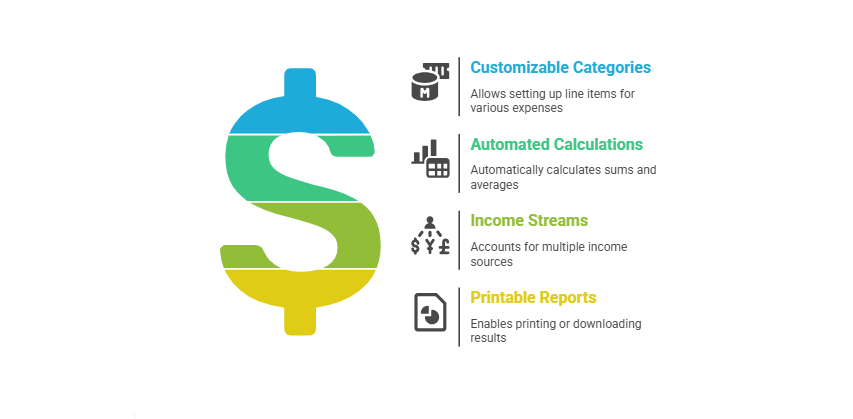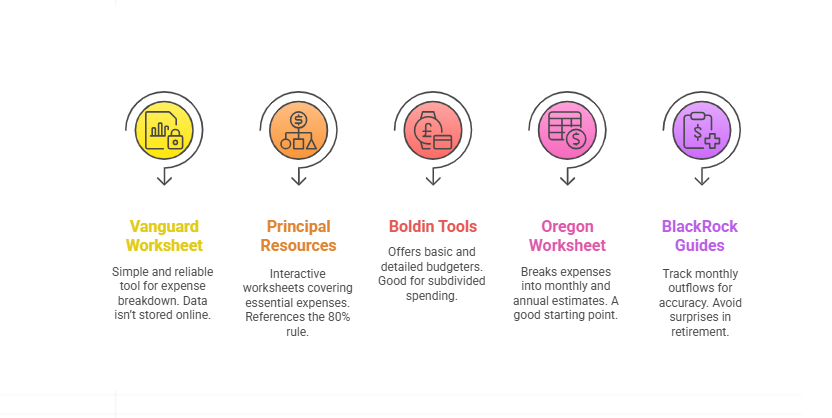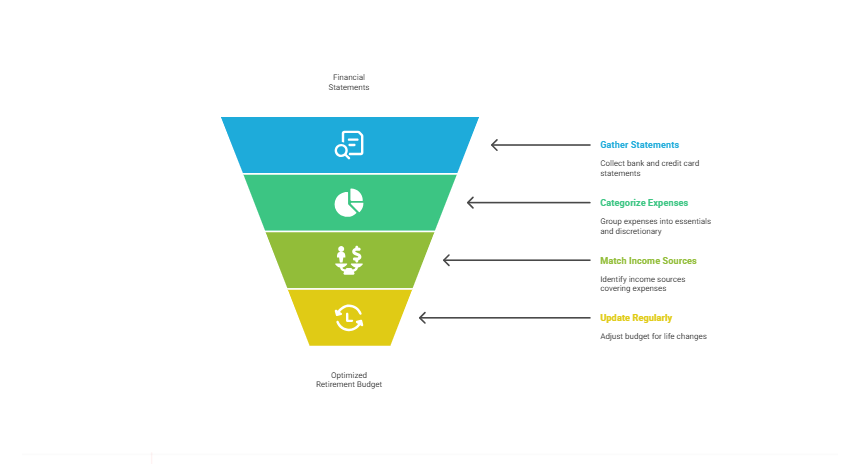
Plan Smart: Best Retirement Budget Spreadsheet for Success
If you’re looking for the best retirement budget spreadsheet to keep your finances on track, you’re in good company. A well-structured spreadsheet can simplify complex numbers, highlight potential gaps, and help you plan for the life you want after you stop working. Let’s walk through some must-know tips before diving into a curated list of tools that make retirement budgeting easier.
Use a Retirement Budget Spreadsheet

You’ve spent years building your career or business, but retirement adds new twists to the budgeting game. Creating a dedicated spreadsheet helps you:
- See exactly where your money goes each month.
- Align your spending with your long-term horizons.
- Adjust your figures easily for medical bills, home repairs, or travel.
Research from Principal shows that the average total annual household spending for retirees is about $54,975 (Principal). That’s a number you don’t want to guess at. With a spreadsheet, you can capture these averages and tailor them to your situation.
Watch for Key Features

Not all retirement spreadsheets are created equal. While comparing different options, watch for:
- Customizable Categories
Can you set up line items for healthcare, family care, taxes, and one-off projects? - Automated Calculations
A good tool calculates sums and averages automatically, giving you a quick snapshot of your spending. - Income Streams
You might have multiple sources, like Social Security or IRAs. Make sure your spreadsheet can account for both guaranteed income and more variable ones. - Printable Reports
Some platforms let you print your results or download them, which is helpful if you want to share with an advisor or family member.
Explore 5 Top Tools

1. Vanguard Retirement Expenses Worksheet
Vanguard’s tool is simple, straightforward, and well-known for its reliability. It breaks down your projected monthly and annual expenses, and you can print your results for future reference (Vanguard). The data isn’t stored online, which is a plus if you’re concerned about privacy.
Highlights
- Easy to print and share with a financial advisor.
- Helps you compare multiple retirement scenarios.
2. Principal’s Retirement Budgeting Resources
Principal offers interactive worksheets and guidelines to walk you through essential expenses, from housing to healthcare. They also reference the 80% rule, meaning you might need about 80% of your pre-retirement income to maintain a comfortable lifestyle (Principal).
Highlights
- Clear breakdown of guaranteed (Social Security, annuities) vs non-guaranteed income (401(k)s, IRAs).
- Provides helpful context about typical retirement spending patterns.
3. Boldin’s Interactive Budgeting Tools
Boldin provides two big options: a quick Basic Budgeter and a Detailed Budgeter that spans over 75 categories (Boldin). This variety helps if you’re someone who likes to see every dollar subdivided.
Highlights
- Flexible categories let you model spending changes over time (like early “go-go” years vs slower “no-go” years).
- Good for exploring different budget scenarios, such as downsizing a home or traveling more.
4. University of Oregon’s Retirement Budget Worksheet
This free resource breaks expenses into monthly and annual estimates, prompting you to think about everything from utilities to personal hobbies (University of Oregon Human Resources). While not as fancy as some paid tools, it’s a good start.
Highlights
- Straightforward approach if you’re new to detailed budgeting.
- Encourages you to monitor changing expenses over time.
5. BlackRock’s Retirement Budgeting Guides
BlackRock suggests tracking your monthly outflows for a few months to ensure accuracy (BlackRock). This approach helps you avoid big surprises when planning for life after work.
Highlights
- Emphasizes the importance of including taxes and healthcare costs.
- Offers pointers on essential vs discretionary spending and one-time expenses.
Try These Practical Steps

Even the best retirement budget spreadsheet can’t do the job alone. Here are some steps to get you rolling:
- Gather Past Statements
Look at a few months of bank and credit card statements to see your typical spending patterns. - Categorize Expenses
Group your bills into essentials (housing, transportation) and discretionary items (restaurants, hobbies). - Match Income Sources
Identify which expenses are covered by guaranteed income like pensions and Social Security, and which rely on variable streams such as dividends, IRAs, or employer-sponsored plans. - Update Regularly
Life changes fast. Remember to tweak your spreadsheet every few months or when something big happens, like a move or major medical bill.
If you want additional strategies for retirement, take a look at how to make money in retirement. This can help you boost your income if you spot any financial shortfalls along the way.
Wrap Up Wisely
You might be wondering: “Which spreadsheet is truly the best retirement budget spreadsheet, how often should you update it, is advanced software necessary, how do you handle healthcare costs, and can it track multiple income streams?” Ultimately, the choice comes down to how in-depth you want your data to be and how comfortable you are with technology.
Crafting the right budget is personal, but the core principle remains: keep track, adjust often, and remain flexible. By picking a tool that suits your style and following these steps, you’ll be well on your way toward a retirement plan that feels stable, freeing you up to focus on the joys of life after the daily grind. Enjoy the peace of mind that comes from knowing your finances are on point.
Showcase your recognition by adding our award badge to your website! Simply copy the code below and embed it on your site to highlight your achievement.

Recent Posts
Retirement Planners in Los Angeles to Consider
Los Angeles, a city synonymous with opportunity and innovation, is...
Retirement Planners in New York to Consider
Navigating the financial landscape of New York can be overwhelming,...





